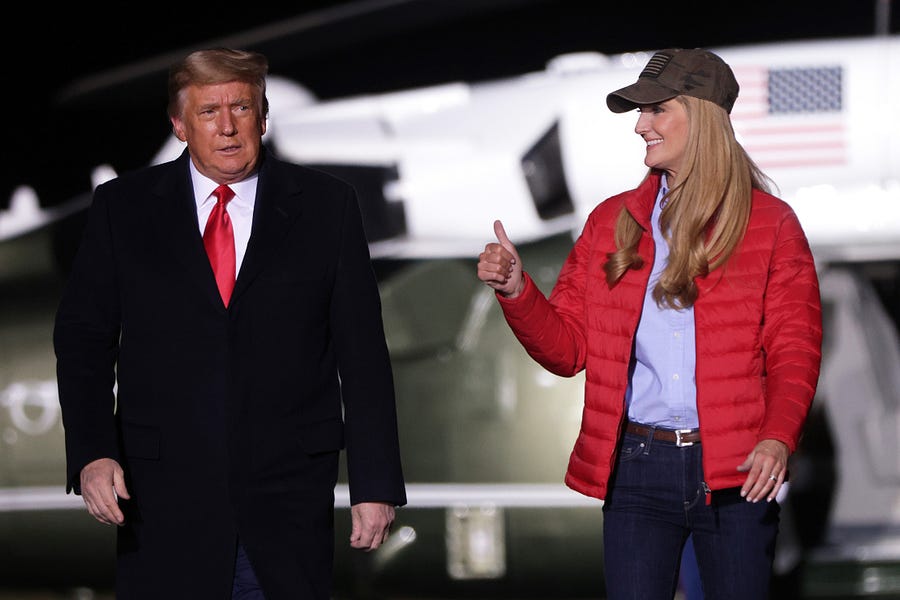At a rally in Georgia on Monday, President Donald Trump claimed that Georgia election officials are not verifying signatures on absentee ballots in Fulton County, saying: “They said, ‘We’ll do Cobb first and then we’ll do Fulton.’ They do Cobb. Then they never get to Fulton.” Trump further claimed that his campaign “didn’t ask for Cobb County” to be audited. In fact, Cobb County was the first in a statewide signature match audit announced by Georgia Secretary of State Brad Raffensperger on December 14, 2020. Raffensperger’s office singled out Cobb to start the audit specifically because a poll worker there had alleged misconduct ahead of the June primaries in a sworn affidavit. The Wall Street Journalnoted that this affidavit was used in a lawsuit Trump filed against Georgian officials.
The results of the Cobb County audit were only just finalized and published on December 29, meaning Georgia officials are now moving on to the next phase of the statewide audit.
Trump misrepresented the plans for auditing absentee ballot signatures in Georgia in his comments on Monday: The state government does have plans to audit Fulton County, as well as all the other counties, and, in fact, Trump’s team did allege misconduct in Cobb County, prompting the audit there.
If you have a claim you would like to see us fact check, please send us an email at factcheck@thedispatch.com. If you would like to suggest a correction to this piece or any other Dispatch article, please email corrections@thedispatch.com.







Please note that we at The Dispatch hold ourselves, our work, and our commenters to a higher standard than other places on the internet. We welcome comments that foster genuine debate or discussion—including comments critical of us or our work—but responses that include ad hominem attacks on fellow Dispatch members or are intended to stoke fear and anger may be moderated.
With your membership, you only have the ability to comment on The Morning Dispatch articles. Consider upgrading to join the conversation everywhere.